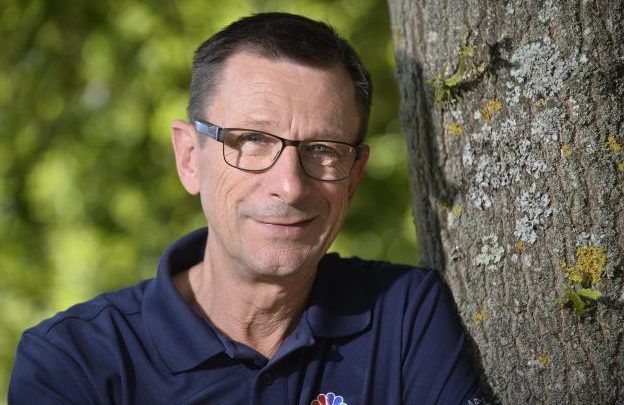
By Roch A. King, Ph.D. |
There is something special about the voices that narrate our sports, whether it is Al Michaels’ timeless “Do you believe in miracles?” call of the 1980 Olympics USA-USSR hockey game, or the broadcaster of your local pro team. For those of us who spent hours in our backyards, driveways, and local parks working on our skills, it was often those voices that accompanied us during those informal practice sessions. If you are of a certain era, it is almost guaranteed that you had Keith Jackson’s voice in your head setting the stage of a fall college football game before you took a fake snap and threw to an imaginary target for the game winning touchdown.
On Sunday, December 2, one of those voices went silent. Cycling’s Paul Sherwen passed away at his home in Uganda. Sherwen is best known for his commentary of the Tour de France bicycle race, an annual event that lasts for three weeks with each day’s stage lasting 4 – 6 hours. Along with his broadcast partner, Phil Liggett, the duo provided the soundtrack of virtually every minute of race each July for 33 years. In his blog post, Neal Rodgers wrote, “If you’re a pro cycling fan and you speak English, odds are good your introduction to the Tour de France included Sherwen and Liggett walking you through the intricacies of our complicated, beautiful sport.”
As a commentator of an endurance sport, Sherwen’s voice and the unique poetry of his words have another function. Sport psychologists who study attention strategies for coping with the discomfort that comes from long strenuous efforts use a two-dimensional model that leads to four types of coping strategies (Stevinsen & Biddle, 1999). One of these four coping strategies is referred to as Internal-Dissociation (Stanley, Pargman, & Tenenbaum, 2007). A common example of internal-dissociation is day-dreaming. (Weinberg & Gould, 2015) Training for cycling routinely calls for the type of long, strenuous effort that demands some type of coping strategy. Imagining Sherwen and Liggett enthusiastically calling your heroic assent up one of the epic Tour alpine summits is one way to create and sustain a high level effort while you are suffering, even if it is a weekend 20 miler on gentle rolling terrain. I myself have been caught out on a training ride that was above my grade and left me a long way from home. It was in fact the voices of Paul and Phil in my head describing “a gutsy solo breakaway from a little known rider that just might hold off the charging peloton,” that kept my pedals turning and eventually got me home.
One Sherwen story that has been repeated frequently during the past few days is of his riding during the 1985 Tour. Sherwen crashed early during a stage in the Pyrenees Mountains. He was able to remount his bike and continue riding, but had lost all contact with the rest of the pack. He rode alone for six hours across six mountain passes to finish over an hour behind the stage winner. His final time was over 20 minutes slower than the cut off time to continue the race. As a testament to his persistence and tenacity, the race jury reinstated him and Sherwen went on to finish the Tour in Paris. I do not know whose voice was in his head that day helping him keep his pedals turning, but the cycling world will always be grateful that for 33 years we had his.
https://cyclingtips.com/2018/12/the-weekly-spin-why-paul-sherwens-death-hurts/
Stevison, C.D., & Biddle, S.J.H. (1999). Cognitive strategies in running: A response to Masters and Tammen. The Sports Psychologist, 13, 235-236.
Stanley, C.T., Pargman, D., & Tenenbaum, G. (2007). The effect of attentional coping strategies on perceived exertion in a cycling task. The Journal of Applied Sports Psychology, 19, 352-363.
Weinberg, R.S., and Gould, D. (2015). Foundations of sport and exercise psychology (6th ed.) Human Kinetics: Champaign, IL
Dr. Roch King is the chair of sports coaching at the United States Sports Academy.
Your so right about how he corrected Phil with respect and love never condescending.
Last month I watched the Tour Down Under with Phil and an Aussie commentating. The Aussie was pretty good, but sadly he was not Paul. Paul had a pleasant way of correcting Phil’s miscues and foibles that was not arguable or criticizing, like he was a kind and well tempered brother to Phil. It made him so real and likable. He will be one of those people we never meet but have known by his welcoming voice and warm smile. The cycling community, and this fan, will miss him now. I hope Phil carries on, we don’t want to miss him too.